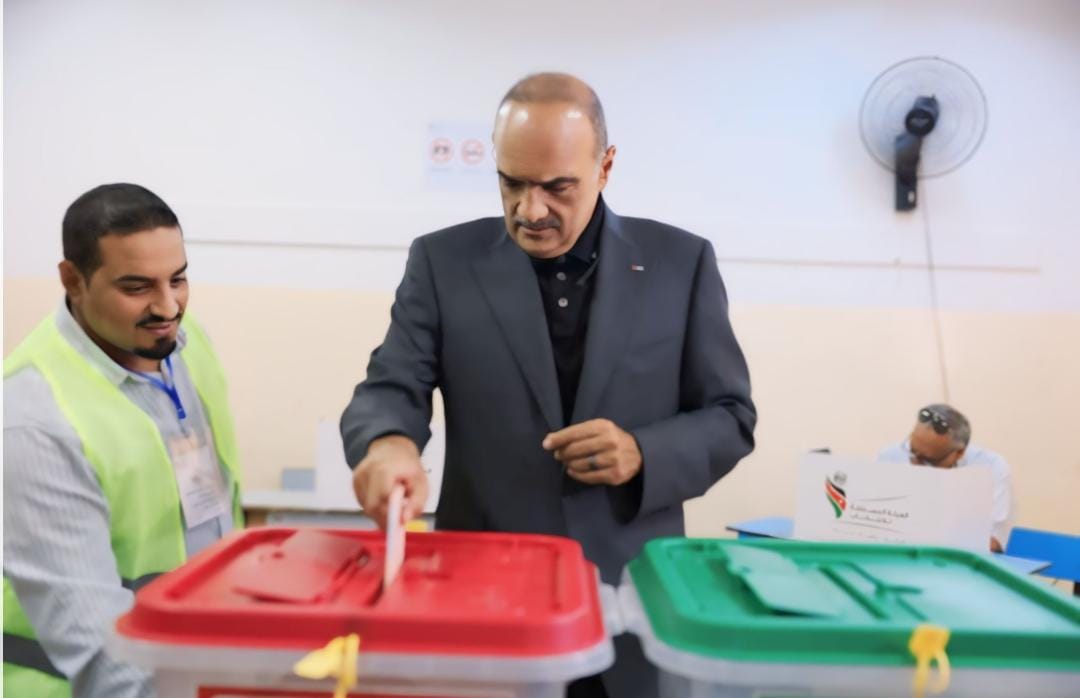- Local News
- Tue-2024-09-10 | 08:22 pm

Nayrouz News Agency :
Prime Minister Bisher Khasawneh cast his vote at an Amman school Tuesday morning as Jordanians voted to choose members of the Kingdom's 20th Lower House of Parliament.
Speaking after casting his ballot at Tayseer Dhabyan Secondary School in Umm Uthaina in Amman’s second district, Khasawneh urged participating in "this constitutional entitlement," as "a key moment in Jordan’s political modernization process."
The elections, he noted, are the first since the introduction of new laws governing political parties and elections, establishing national party and local lists.
"This is a landmark day for Jordan, reinforcing the strength and stability of the Kingdom under the leadership of His Majesty King Abdullah II," Khasawneh said, adding that the vote was held on schedule, demonstrating the Kingdom's resilience and clarity of its path.
The Prime Minister expressed hope for a heavy turnout, befitting the significance of the occasion and the aspirations of the Jordanian people. He prodded citizens, particularly youth, to engage in the electoral process by voting for the candidates who can best meet their ambitions in the legislative oversight and political reform.
The elections, Khasawneh reiterated, are a pivotal step in Jordan’s broader political modernization journey that will span three electoral cycles, alongside economic and administrative reforms. He underlined participation by young people, calling them Jordan’s "true wealth," who are critical to shaping the country’s future and decision-making process.
Addressing concerns that the elections are taking place amid regional instability, the Prime Minister affirmed that Jordan remains confident in its institutions and leadership. He highlighted the country’s commitment to holding elections on time despite the difficult regional situation, including the Israeli aggression on Gaza and the escalation in the West Bank.
He further stressed that despite challenging regional surroundings, Jordan consistently upheld its constitutional obligations, demonstrating confidence in its citizens and national institutions.
Khasawneh also pointed to Jordan’s recent credit rating upgrade by Moody’s and Standard & Poor’s, in contrast to downgrades for other non-oil producing countries in the region, as evidence of the Kingdom’s robust economic performance.










